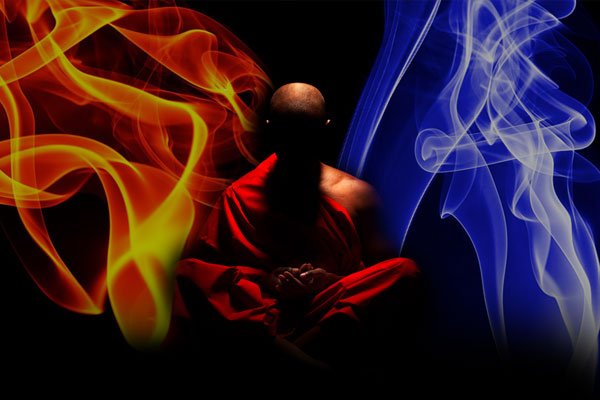The gullible are always ready to believe, accept and obey, regardless of whether what is offered is good or bad, mischievous or useful. The believing mind is not an inquiring mind and therefore remains within the limits of the formula or principle. Through experience you hope to discover the truth of your belief, to prove it to yourself, but this belief determines your experience. It is not that experience proves belief, but rather that belief produces experience.
Man has always been looking for something beyond his own death, beyond his own problems, something that will be lasting, true and timeless. He has called it God, he has given it many names; and most of us believe in such a thing without ever actually experiencing it.
Meditation as open research
When you explore such extraordinary questions, there must be the freedom to actually know nothing about them. You really don’t know, do you? You don’t know what truth is, what God is – if there is such a thing – or what a truly religious spirit is. You’ve read about it, people have talked about it for millennia, built monasteries, but actually they live off the knowledge, experience and propaganda of others. To find out you have to put all of that aside completely, and that’s why investigating all of this is a very serious matter. If you want to play with it, there are all kinds of so-called spiritual, religious forms of entertainment, but they have no value to the serious mind.
I find that as long as the mind is in a state of fear, it wants to escape from it, project the idea of the Supreme and experience that. But when it frees itself from its own pain, it is in a completely different state. The experience isn’t even asked for because it’s on a different level.
Is it selflessness to lose yourself in a book, in a song, in an idea? Is devotion the worship of an image, of a person, of a symbol? Can a symbol ever represent the truth? Isn’t a symbol static, and can a static thing ever represent that which is alive?
Your image is your intoxicant, and it is cut from your own memory; you worship yourself through the image created by your own thoughts. Your devotion is the love of yourself covered by the song of your spirit.
Unless people find holiness, their lives really have no meaning; it is an empty shell. They can be very orderly, they can be relatively free, but unless there is something that is totally sacred, untouched by thought, life has no deep meaning.
Is there anything sacred, or is everything matter, everything thought, everything impermanent, everything transient? Is there anything that the mind can never touch and that is therefore imperishable, timeless, eternal and sacred?
There is a holiness that comes neither from thought nor from religious belief. It is not recognizable to the mind, nor can it be used by the mind. religious beliefs cannot formulate it. But there is a holiness, untouched by any symbol or word. It is not transferable. It is a fact. A fact must be seen and seeing does not happen through the word. When a fact is interpreted, it ceases to be a fact; it becomes something completely different. Seeing is of the utmost importance. Seeing is outside of space-time; it is immediate, instantaneous. And what you see is never the same again.
This holiness knows no worshiper, the observer who meditates on it. It is not on the market to be bought or sold. Like beauty, it cannot be seen by its opposite, because it has no opposite.
By religion we mean bringing together all energy to investigate… whether there is anything sacred.
One must, without any motive, without any purpose, examine the facts of the time and investigate whether there is a timeless condition. To practice the meditation of open inquiry one must not have any faith, not be committed to any religion, not to any so-called spiritual organization, not to follow any guru, and therefore not have any authority.

